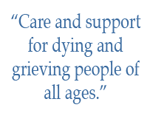| Military Kids: Responding to Their Grief |
|
|
By Helen Fitzgerald, CT To fully understand what children go through when a parent is assigned to a war zone, we need to look at the nature of grief. Grief is experienced not only when a loved one dies, but whenever a significant loss occurs. Because childhood is so fleeting, important phases of a child’s life may have to pass without the companionship of a father or mother who is fighting a war far away. The loss felt by the child — the absence of nurturing, guidance, and role modeling — is a form of grief. Like all grief, it needs attention from the parent still at home or from another family member. To the unique type of grief of the military child, we can add two more burdens: constant anxiety about what might be happening to the parent, and fear of the unknown. It may be hard to reassure a child about the welfare of a parent in the war zone, but, as the story below demonstrates, there are things that can be done to answer some of the other common fears. After the death of her husband, a young widow began to observe anxiety, agitation and sleep disturbances in her children. One day they startled her with this question: What would happen to us if you died? At first, she simply said, Don’t worry, nothing is going to happen to me. She then realized she couldn’t be certain of that. So she said, I am going to do everything I can to stay safe and healthy but, just in case I did die, who would you want to live with? The children named a favorite aunt in another state. Then they asked, But how would we get there from here? The mom outlined a plan, rather like a fire drill, for how the children would function if an emergency happened. Thus reassured, the children began to sleep better and to show fewer anxieties. They had a plan “B,” and that eased some of their fears. If you are a military parent holding down the home front, you might want to consider having a similar conversation with your children. Talk with them about what your plans would be if your spouse is transferred, is hurt, or dies. Would it mean moving away somewhere? Would you have to get a job, or change jobs? Would there be changes in school plans? Children do not like uncertainty, so talking about such details could help them put some of their fears to rest. When a parent leaves on a war mission, the remaining family members often struggle to regroup and set up new routines. Roles change. As the home-based parent, try to be sensitive to the difficulties that your children may have when daily routines and schedules change. While your spouse is away and you’re playing the role of a “single parent,” try to set aside a few minutes each day just for “talk time.” Dinnertime can be a good time to bring everyone around the table and have this comforting ritual. You may use this gathering of family members to ask questions, share thoughts and feelings, and find out about everyone’s fears and concerns. If you find that one or more of your children is experiencing persistent anxieties, you might look into the availability of support groups. This type of group is a safe place where children can share anything and can feel connected to other children with the same concerns. It is always comforting to learn that others worry about the same things you are worried about. Your spouse’s military organization may have such groups, or you may find help at your children’s school, church or local mental health center. With the help of a professional, you might even start one on your own. It’s also a good idea to keep in consistent contact with your children’s school to see how your children are doing. School counselors, teachers, and nurses may discern behavior changes that you need to know about. The following tips may be helpful:
Additional resources:
Fitzgerald, Helen. The Grieving Child. New York: Simon & Schuster, 2003. Click back to the Grief at School Articles page for the following free resources:
To help us offer more free articles like these, please donate to the American Hospice Foundation. For more information on hospice, grief and end-of-life issues, contact the American Hospice Foundation at 800-347-1413 or email ahf@americanhospice.org. |






